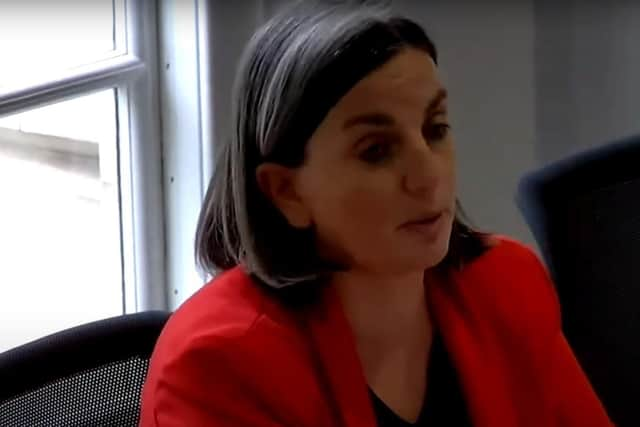Solar farms could be built on contaminated land
The city council has revealed it wants to install more solar panels on sites across the city, as long as the property in question can’t be used for food, farming or housing.
The council granted planning permission for a huge solar energy farm between Kippax and Allerton Bywater in east Leeds last year.
Advertisement
Hide AdAdvertisement
Hide AdThe 50-hectare site, which will be run by private firm Banks Renewables, will eventually generate enough energy to fuel 12,000 local homes.


Speaking at a meeting of the council’s climate emergency advisory committee on Monday, senior councillor Helen Hayden said similar parks could be created elsewhere.
She warned however that suitable publicly-owned sites, such as those once used for landfill or mining, were at a premium.
Councillor Hayden, who is the authority’s executive member for infrastructure and climate change, said: “We are looking at land that can’t be used for housing and can’t be used for agriculture – contaminated land – for solar farms, to provide Leeds City Council’s energy use.
“We are actively looking at that.
Advertisement
Hide AdAdvertisement
Hide Ad“That’s the type of land we should be using for things like solar farms. Land that can’t be used productively for food or housing and that’s not in the greenbelt.”
Councillor Hayden said there was a “shortage” of public fields owned by the council that could be used to generate solar energy.
She also said the authority could not dictate privately-owned sites be converted into energy farms.
But she said the rooves of council buildings could also be used to host panels.
Advertisement
Hide AdAdvertisement
Hide AdLiberal Democrat councillor Conrad Hart-Brooke offered his backing to the Labour-run administration over the policy, saying it was “absolutely the right thing to do”.
He told the meeting: “I think some of the (schemes) coming from central government have created a perverse incentive where it’s easier to grow electricity than it is to grow carrots.
“We’re a small island with a shortage of good agricultural and grazing land. That should be the first and foremost use of land, rather than sticking solar panels on it.
“One thing we do have a lot of in the UK is rooves, which are exactly the right place for solar panels because they’re already there.”